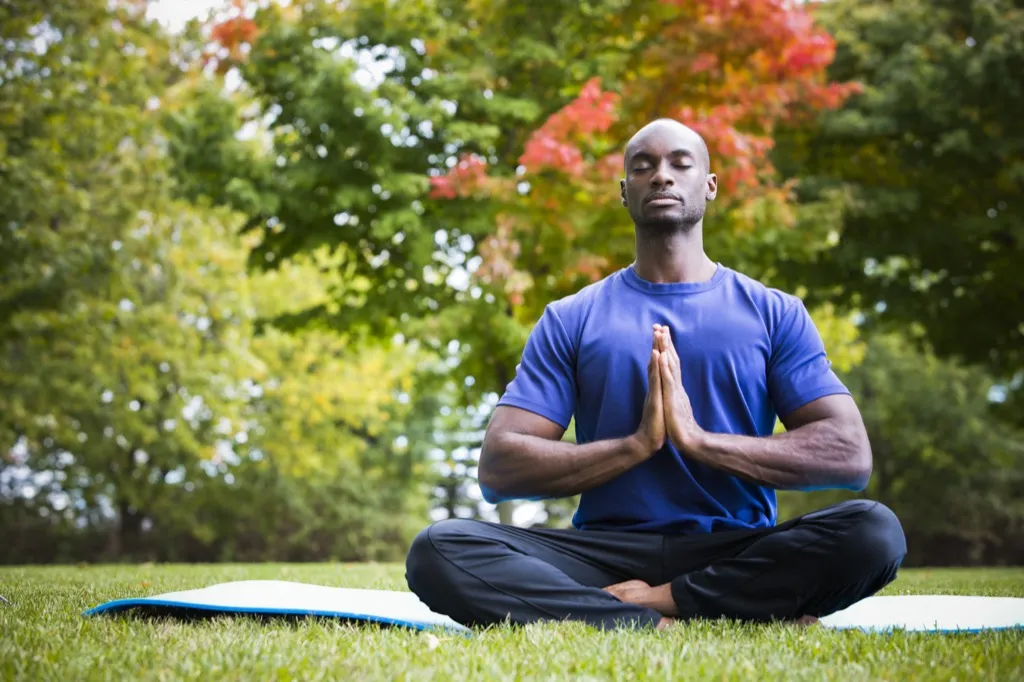20 Science-Backed Benefits of Gratitude

On its own, being a grateful person is already a good thing; a little niceness never hurts. But the quality comes with a number of surprising mental and physical health benefits, as well. For proof, just spend some time with someone who’s on-the-whole more appreciative than most. You’ll quickly see that they’re more happy, less resentful, and even in possession of a keener mind than the average individual.
And that’s just the tip of the iceberg! Though you can’t always see it, the benefits of being grateful even extend beyond the brain, making a person’s heart healthier and leading to better, more restorative sleeps. It’s enough to make a guy or gal want to say “thanks” to every little action, no matter how small—or even just for kicks. Read on, and see for yourself.
1
It makes you more optimistic.

Unsurprisingly, one of the biggest benefits of being grateful is that you’ll be granted a better outlook on life. In one study from the University of Miami, psychologists found that people who wrote down the things they were thankful for during the week proved to be the most optimistic, compared to those who wrote about the things that bothered them and those who simply wrote about daily occurrences neither positive nor negative.
2
It boosts your mood.

If you’re ever in a bad mood, just show someone your gratitude and your spirits will be instantly lifted. Evidently, something as simple as giving someone a letter expressing your appreciation can have a profound effect on your happiness levels.
3
It helps you work harder.

If you’re dealing with unmotivated employees, showing them a little bit of gratitude might help. Researchers at the Wharton School at the University of Pennsylvania found that, when university fundraisers were given a pep talk before their shift, they made 50 percent more calls compared to those who were sent off to work sans chat.
4
It keeps your relationship thriving.

All any husband or wife wants is just to know that their small acts of kindness don’t go unnoticed. By expressing your gratitude in your relationship, you can ensure that your marriage stays happy and healthy and that both you and your partner are adequately satisfied.
5
It makes you want to hit the gym.

People who are more outwardly thankful are also more active. Numerous studies have shown the correlation between a person’s amount of gratitude and their number of trips to the gym, with one study showing that those who kept a weekly gratitude journal worked out nearly one-and-a-half more hours per week than the control group.
6
It helps you sleep better.

Seeing as negative thoughts and self-doubts have a tendency to keep us up at night, it’s little surprise that focusing on the positives in your life has the ability to help you sleep better. Just jotting down a few things that you’re thankful for before you hit the hay should help you doze off faster and sleep more soundly.
7
It makes you appreciate you for who you are.

In today’s world, people have a tendency to compare themselves to others in each and every way, but not when gratitude is in the picture. One study from Bina Nusantara University in Indonesia found that the more grateful a person is, the less they compare themselves to others and the more satisfied with their own lives they are.
8
It makes you physically healthier.

The benefits of being grateful extend beyond the mental realm. According to one study published in Personality and Individual Differences, people who are appreciative experienced fewer aches and pains and reported being in better health than those who lacked gratitude.
9
It changes your perception of past events.

All it takes is the surfacing of one bad memory to ruin an otherwise perfect day. However, grateful people don’t have to worry about this possibility, given that they have a tendency to forgive and forget when it comes to less-than-pleasant experiences. And if you find that you’re letting your unpleasant past experiences weigh you down, take a second to assess them again—but this time, do so with gratitude. You might just find that with this new outlook, your perception of the past—and thusly, your mood—will change for the better.
10
It helps you make new friends.

When making new friends, what are some of the characteristics that you look for in a person? If one of your answers was “gratitude,” then you’re certainly not alone. According to one study from the University of New South Wales, acquaintances are more likely to seek out a friendship with you if you thank them for something, as this is “a valuable signal that you are someone with whom a high quality relationship could be formed,” according to study author Lisa Williams.
11
It makes you less aggressive.

Those who practice gratitude are particularly adept at keeping their cool instead of flying off the handle. Even in response to negative feedback or unkind behavior, people who are thankful are unlikely to be vengeful or feel the need to retaliate, according to one study from the University of Kentucky.
12
It helps you cope with traumatic life events.

Not only does gratitude positively affect your mood, but several studies have shown that it also provides a means by which you can overcome emotional trauma. For instance, one study published in Behavior Research and Therapy found that war veterans who ranked highly on the gratitude scale had lower rates of post-traumatic stress disorder. Researchers believe that people who are grateful are able to focus less on the traumatic events and suffer less because of this.
13
It creates loyal customer bases.

What businesses have quickly come to realize is that more than anything, consumers want to feel like they’re being appreciated. One study out of the Queensland University of Technology found that when retailers expressed gratitude toward their customers, the consumers were more likely to remain loyal to that business and continue shopping there. Rather than providing perks that clearly benefit the company, the study authors suggest that businesses offer services that put the customer first like members’ only events or special store hours for members only.
14
It makes you less materialistic.

Nothing good can come from chasing wealth and being materialistic. And if you find yourself putting the pursuit of money over your relationships and well-being, then perhaps adding some gratitude into the rotation might turn things around. According to researchers from the University of Miami, gratitude “may obviate the need for materialistic striving as a way of coping with existential insecurity” by making one’s outlook on life more positive.
15
It makes you more trusting of others.

When people are in a good mood, they are also more likely to put their faith in others. And similarly, one study published in the Journal of Personality and Social Psychology concluded that gratitude—another emotion with “positive valence”—increases a person’s tendency to trust.
16
It helps you achieve your goals.

One of the many benefits of being grateful is that it helps you work on achieving your life goals. In one study, researchers from the University of California, Davis, found that students who kept a gratitude journal were more successful in making strides toward achieving their goals compared to those who didn’t practice gratitude.
17
It gives you more willpower.

The fight to resist temptations starts with gratitude. Being thankful and being patient go hand-in-hand, which is why people who express gratitude are better able to practice patience in social situations, curb cravings (and keep off weight), and avoid impulse purchases.
18
It makes you smarter.

People who remember to say “thank you” aren’t just polite—they’re also exceptionally smart! One study published in the Journal of Happiness Studies found that people who are grateful have higher grade point averages, plus are less depressed and jealous of others.
19
It keeps your heart healthy.

A grateful heart is a healthy one, at least according to research published in Spirituality in Clinical Practice. In the study, researchers found that gratitude reduced inflammation and produced healthier heart rhythms in patients with heart failure.
20
It helps you enjoy your job.

When your boss goes out of his or her way to let you know that they appreciate your hard work, it makes you actually want to do a good job. One study from the University of Washington determined that when a person felt appreciated in the office, they had a higher job satisfaction and quality of life. And in another study published in the Journal of Personality and Social Psychology, researchers found that receiving a thank you note from a boss improved workers’ performances by 50 percent.